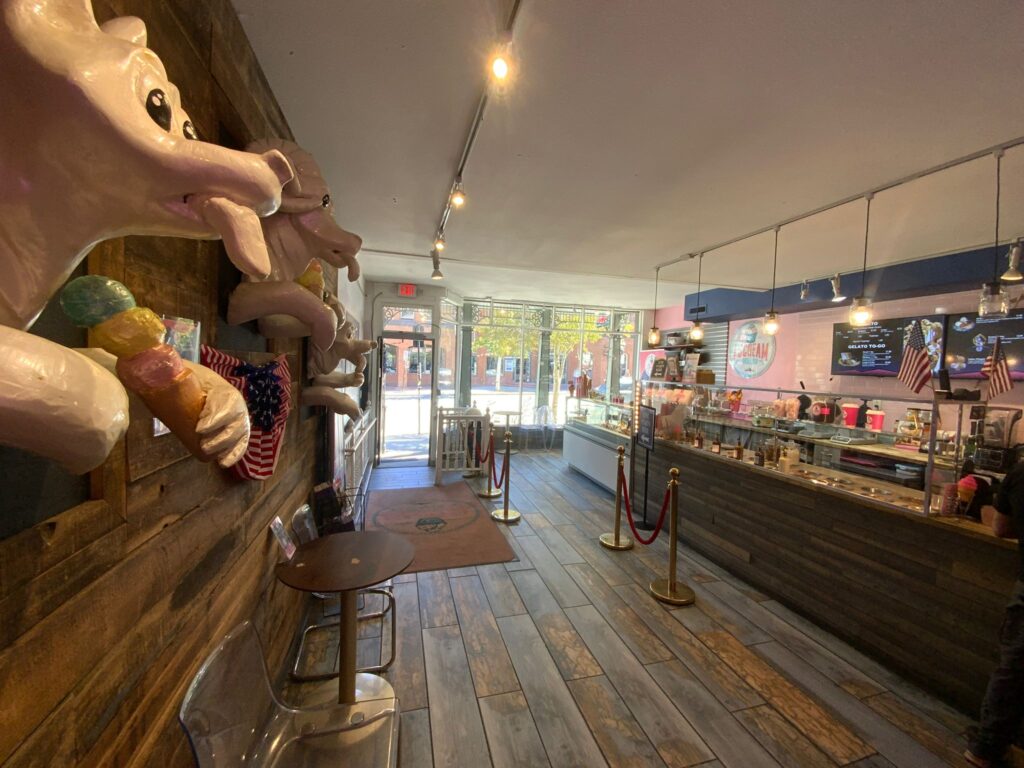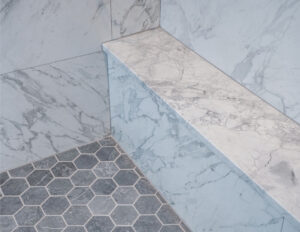Choosing The Right Insulation For Denver’s Seasonal Shifts
Okay, Denver friends, let’s chat about something we all know too well: our wild weather. One minute it’s 70 and sunny, perfect for hiking; the next, you’re scraping ice off your windshield while dreaming of summer. If your home feels like it’s constantly battling the elements—drafty in winter, stuffy in summer, and your energy bills are rollercoasters—chances are your insulation isn’t cutting it. At Verified Builders, we’ve tackled this headache in countless homes across the city, from historic bungalows to modern builds. Insulation isn’t just fluff in your walls; it’s your home’s secret weapon against Denver’s mood swings. Forget boring manuals—we’re breaking this down like buddies over coffee. Ready to stop shivering (or sweating) in your own living room? Let’s get into it.

Why Denver’s Weather Plays Rough With Your Home
Denver’s climate isn’t just quirky—it’s brutal on buildings. Dry winters plunge below freezing, while summer sun bakes roofs into frying pans. That swing stresses your HVAC system, ramps up energy costs, and leaves you with hot/cold spots that ruin movie night. Ever notice how your upstairs feels like a sauna while the basement’s an icebox? Yep, poor insulation’s the culprit. We’ve seen it in so many custom remodels: homes leak heat like sieves because builders decades ago skimped on insulation or used outdated materials. FYI, if your house predates the internet, it’s probably under-insulated. The fix? Smart upgrades that balance R-value (that’s insulation power) with moisture control. At Verified Builders, we geek out over this stuff because, honestly, who wants to pay Xcel extra cash for heating the great outdoors?
Insulation 101: It’s Not Just Pink Stuff Anymore
Think insulation’s one-size-fits-all? Think again. We’re talking materials with wildly different strengths, costs, and quirks. Here’s the lowdown:
| Insulation Type | R-Value Per Inch | Best For Denver | Pros | Cons |
|---|---|---|---|---|
| Spray Foam | 6.0–7.0 | Attics, walls, tricky gaps | Blocks air leaks, moisture-resistant | Pricey, pro install only |
| Cellulose | 3.2–3.8 | Attics, retrofit walls | Eco-friendly, great for older homes | Can settle over time |
| Fiberglass Batts | 3.0–4.0 | Walls, floors (simple layouts) | Budget-friendly, DIY-able | Poor air sealing if gaps exist |
| Rigid Foam Boards | 4.0–6.5 | Basements, exterior sheathing | High R-value, moisture-resistant | Needs careful sealing at edges |
R-value is your gold standard—it measures how well insulation resists heat flow. Denver’s code requires R-49 in attics and R-21 in walls, but hey, why stop there? IMO, overshooting a bit saves cash long-term. We learned this the hard way in early whole house remodeling jobs: skimp on R-value, and homeowners call us back when winter hits.
The Contenders: Pros, Cons, and Our Real-World Takes
- Spray Foam: Our go-to for luxury home renovations or drafty old gems. It seals every nook, blocks moisture (crucial for basements!), and lasts decades. Downside? It costs more upfront—but slashes energy bills fast. We used it in a Capitol Hill home addition last year; client’s heating costs dropped 30%. Worth it? Absolutely.
- Cellulose: Made from recycled paper, it’s green and great for topping up existing attic insulation. We love it for basement remodel projects where moisture isn’t a big worry. Just avoid dumping it over old knob-and-tube wiring—safety first, folks 🙂
- Fiberglass Batts: Cheap and easy, but oh boy, they’re finicky. Gaps or compression cut efficiency by half. We only recommend these for straightforward jobs, like garage walls or DIYers on a tight budget.
- Rigid Foam: Ideal for basements or exterior applications. Pair it with spray foam for seams, and you’ve got a fortress.
Matching Insulation to Your Home’s Personality
Every Denver home’s different. A 1920s bungalow needs different TLC than a new build in Stapleton. Here’s how we approach it:
Attics: Where Battles Are Won or Lost
Your attic’s ground zero for Denver’s extremes. Heat rises, so poor insulation here means your furnace works overtime. Aim for R-49 (about 16–18 inches of cellulose or spray foam). If you’re doing a bathroom remodeling or home renovation below, it’s the perfect time to beef this up—we often add insulation during bathroom renovation contractor jobs since we’re already opening ceilings.
Basements and Crawl Spaces: Don’t Ignore the Underdog
Basements get chilly and damp, making insulation tricky. Use moisture-resistant rigid foam or closed-cell spray foam on walls—never fiberglass, which soaks up water like a sponge. As basement contractors, we cringe when we see soggy batts. They breed mold and rot wood. Pro tip: Pair insulation with a vapor barrier. Seriously, your future self (and sinuses) will thank you.
Walls and Windows: The Sneaky Culprits
Walls lose heat fast if insulation’s spotty. During a whole house remodeling, we blow cellulose into wall cavities or add exterior rigid foam. Windows? Recaulk them! It’s cheap and stops drafts cold. If you’re not renovating, consider storm windows—Denver’s wind loves finding gaps.
Beyond the Basics: Pro Secrets We Swear By
Insulation’s only half the story. Air sealing is its BFF—seal gaps around pipes, outlets, and ducts first, or insulation’s wasted. We use blower-door tests to find leaks; it’s like a lie detector for your house. Ventilation’s key too: Denver’s dry air plus a sealed home can trap pollutants. Add an ERV system if you’re going all-in.
And please, skip the DIY disasters. We once fixed a homeowner’s “insulation special” where they packed batts over recessed lights—fire hazard central. Hire a general contractor who knows codes. Check online reviews to avoid cowboys.
DIY vs. Pro: Why We’re (Slightly) Biased
Look, we get it—YouTube makes everything look easy. But insulation’s messy, itchy work. Spray foam requires pro gear, cellulose needs dense-packing machines, and one misstep with vapor barriers causes mold city. Plus, pros guarantee their work. Searching for “home remodeling near me”? Vet your remodeling company: ask about licensing, insurance, and past Denver projects. At Verified Builders, our crews train for local quirks, like our altitude’s effect on foam expansion. Worth the cost? We’ve seen too many DIY fails say yes :/
Your Insulation Upgrade: No Surprises, Just Comfort
Wondering what to expect? Here’s our typical playbook:
- Inspection: We check your current insulation, air leaks, and moisture issues.
- Plan: Recommend materials and R-values tailored to your home and budget.
- Install: Clean, precise work—we minimize dust and disruption.
- Results: Cozy rooms, lower bills, and peace of mind.
Costs range from $1.50–$5.00 per sq ft depending on materials and access. Attics are cheapest; walls cost more. ROI? Most Denver homes recoup it in 3–7 years via energy savings.
FAQs: Your Top Insulation Questions, Solved
-
What’s the best insulation for Denver’s climate?
Spray foam or cellulose for attics; rigid foam for basements. Match it to your home’s age and structure—nearest basement remodel contractor can advise. -
How much does insulation installation cost in Denver?
Attics run $1,500–$4,500; whole homes $8,000–$15,000. Get quotes from closest pros—prices vary by material and labor. -
Can I add insulation over existing material?
Usually yes! We layer cellulose over old fiberglass in attics often. But remove moldy or damaged stuff first.
Wrapping Up: Stay Cozy, Denver!
Getting insulation right transforms your home from weather-punched to weatherproof. No more drafts, insane bills, or uneven temps—just year-round comfort. Whether you’re tweaking a few spots or overhauling everything in a whole house remodeling project, smart choices pay off fast. At Verified Builders, we’re Denver locals who’ve handled this for years, from basement contractors gigs to luxury home renovations. So if your home’s struggling with our crazy seasons, let’s chat. Grab a coffee, give us a call, and we’ll help you insulate like a pro. After all, life’s too short for cold toes!
Ready to conquer Denver’s weather? Contact Verified Builders today for a free insulation consult—because your home deserves to feel like home, no matter the season.


